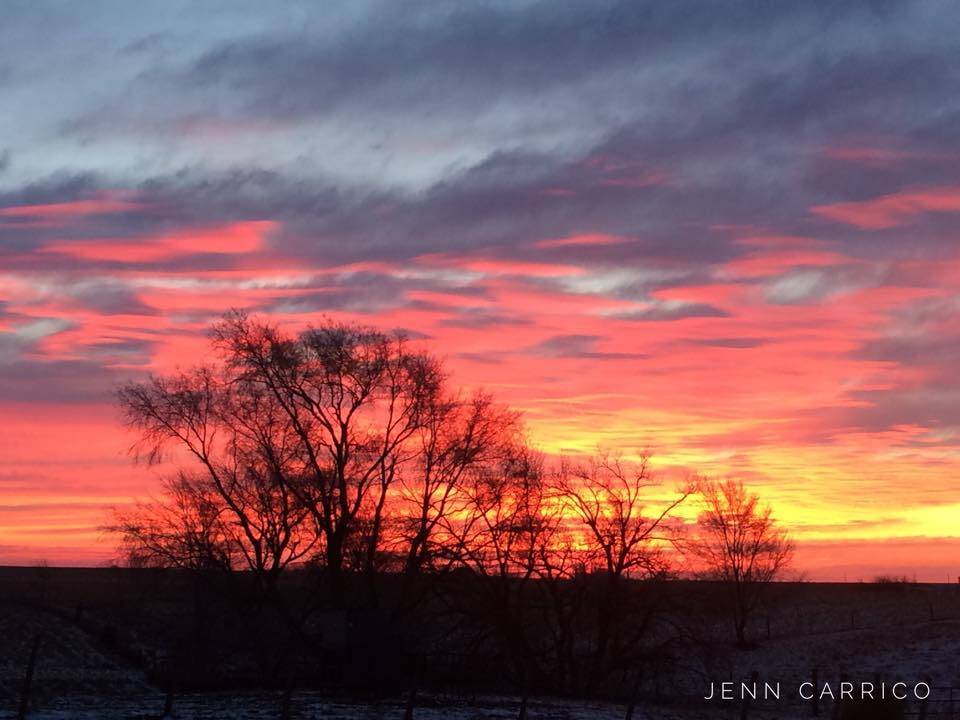 Marriage is marriage, whether the couple is living on or off a farm, as Jody Dvorak so wisely reminded me last week when the two of us were chatting about ABC’s reality show “The Bachelor”.
Marriage is marriage, whether the couple is living on or off a farm, as Jody Dvorak so wisely reminded me last week when the two of us were chatting about ABC’s reality show “The Bachelor”.
“A supportive spouse is there at the end of the day to listen, to understand that her needs don’t come first every day and to provide a safe space for her husband,” said Dvorak.
Words of affirmation are a love language for all men, according to 10 Secrets of a Happy Marriage as penned by author Karen Kingsbury in her bestselling book Forever. Women need respect and nurturing. Always show appreciation and remember to say “thank you.”
While both partners must “work” at a marriage, I’m focusing on what women can do. Why? Iowa bachelor Chris Soules has a worldwide stage now, which provides an opportunity to showcase Iowa in particular and agriculture in general. Last Monday on TheFieldPosition.com we addressed 5 misperceptions bachelorettes had about Iowa agriculture during the season premiere. Today I’m offering marriage advice from experienced farm wives.
The following 5 Tried and True Pieces of Marriage Advice are the result of me sifting through Facebook comments and emails from my farm friends and summarizing them for bachelorettes:
- Keep the faith.
- Never doubt for one moment that you are loved.
- Date nights are weather dependent, regardless of the season.
- Learn to speak “farm talk” or “ag talk,” an unofficial love language.
- Enjoy life’s simple pleasures.
Keep the faith. “Pray for safety for your ‘man’ and for patience to sustain you throughout the season,” as Chris Cornelius of Andrew, Iowa, wrote lovingly in a letter to the lady who is now happily married to Chris’ oldest son. Farming is a consuming business. Both the body and mind are taxed during the busiest seasons of the year. Remember, “This too shall pass.”
Never doubt for one moment that you are not loved. There will be weeks of long hours and sacrifice,” adds Chris. During the planting and harvest seasons, recognize it’s “not about me,” it’s about the business. “Farming is a matter of attitude.”
Attitude is everything, agrees Laura Cunningham. Growing up on a North Central Iowa grain and beef operation, she knew what to expect when she married a farmer. It’s also why she chose to become a third generation Iowa farmer herself! Laura and her husband Aaron are partners in SkyView Farms. Aaron focuses on raising row crops and feed for their livestock. Laura’s focus is the cow-calf operation and marketing their locally raised beef products.
On the other hand, Jody Dvork says she was clueless about how long a farmer’s hours are. “Before cell phones, it was tough to know what was going on in the field or even what field he was in! I also didn’t realize how much time I’d be spending alone.”
It’s times like this when many supportive farm wives look for opportunities to rendezvous. Laura and her husband share a May birth date. Sometimes they share birthday cake in the tractor cab. If it’s too windy to spray or the soils are too wet to work, the Cunninghams may find themselves celebrating their birthdays with a boat ride or a day at the lake. They spent their fourth wedding anniversary with a romantic picnic in a field of beautiful purple flowers – never mind that Aaron stepped down from combine and took time out from harvesting monarda.
“Date nights during planting and harvest equals time in the tractor or combine with your husband,” shares newlywed Jenny Dewey Rohrich on her Prairie Californian blog. “Dates during any other time of the year besides winter equals checking crops. If you want to see him or spend time with him, this is where you will be.”
Most dates are weather dependent. Unlike your non-farming friends, you’ll be happy for rain on Saturdays in the summer adds Jody Dvorak. “Rain means you may go to a movie or out to dinner with your guy, and your guy is usually happy for the rain because it makes his crops grow.”
Know that a majority of the conversations during your meal time will be about farming, advises Jenny Rohrich. Farm talk will become table talk during supper. “Talking farming” is a love language. It’s okay to let your farmer talk; you can practice your listening skills. J You will get to hear all about how the crops are growing. You’ll get an update on commodity prices. You’ll probably hear about equipment that broke down, equipment needs or his equipment wish list.
Regardless of the season, weather is always a favorite topic of conversation. Weather dictates what farming operations can be performed during spring, summer and fall. Summer weather plays a major role in crop yield, which greatly affects farm income. And in Midwest during the winter, weather dictates whether or not you’ll be leaving home. Prepare yourself for delays, postponements and cancellations due to inclement weather.
Even though Iowa’s average daytime temperature in January is 15°, you’ll find beauty in the countryside. While the constellations are a sight to behold in the fall and summer, they shine even brighter on a cold winter’s night. On the coldest days, you’ll find beauty in the form of sun dogs. Sunrises and sunsets can be brilliant, too.
Learn to enjoy life’s simple pleasures.“I really enjoy sitting around the fire pit and admiring the view,” says Jody. “Even though I rode the city bus to hang out with my friends on weekends as a kid, I’ve learned that my little town doesn’t need a mall or even a spa to be awesome. I cherish the friendships I’ve made here, too.”
It’s possible for a woman who wasn’t raised on a farm to find happiness on one, but Jody advises the bachelorettes to know what they’re in for! Here are three things she wishes she would have known:
- That “slow time” between harvest and planting seasons is pretty much a myth. The work is hard, and the laundry is dirty. When that pricey equipment breaks down, you’ll just shut off the stove, throw the kids in the car, run to pick up your stranded farmer. Later that night, you eat gluey potatoes and are happy that everyone is home safe and sound.
- Most of that beautiful corn growing in all those fields you drive past doesn’t end up in cans of Del Monte niblets. The majority of Iowa’s corn is made into livestock feed, and there is definitely a difference between “feed” and “food”! Field corn goes into feed; sweet corn goes on your supper table.
- Strategically choose your seat at the annual seed dinner. Make it a point to stop and “tie” your shoe casually as you pass one of the banquet tables. If you see a red dot under one of the chairs, take that seat. There might be a centerpiece or Latham® spatula in your future!


